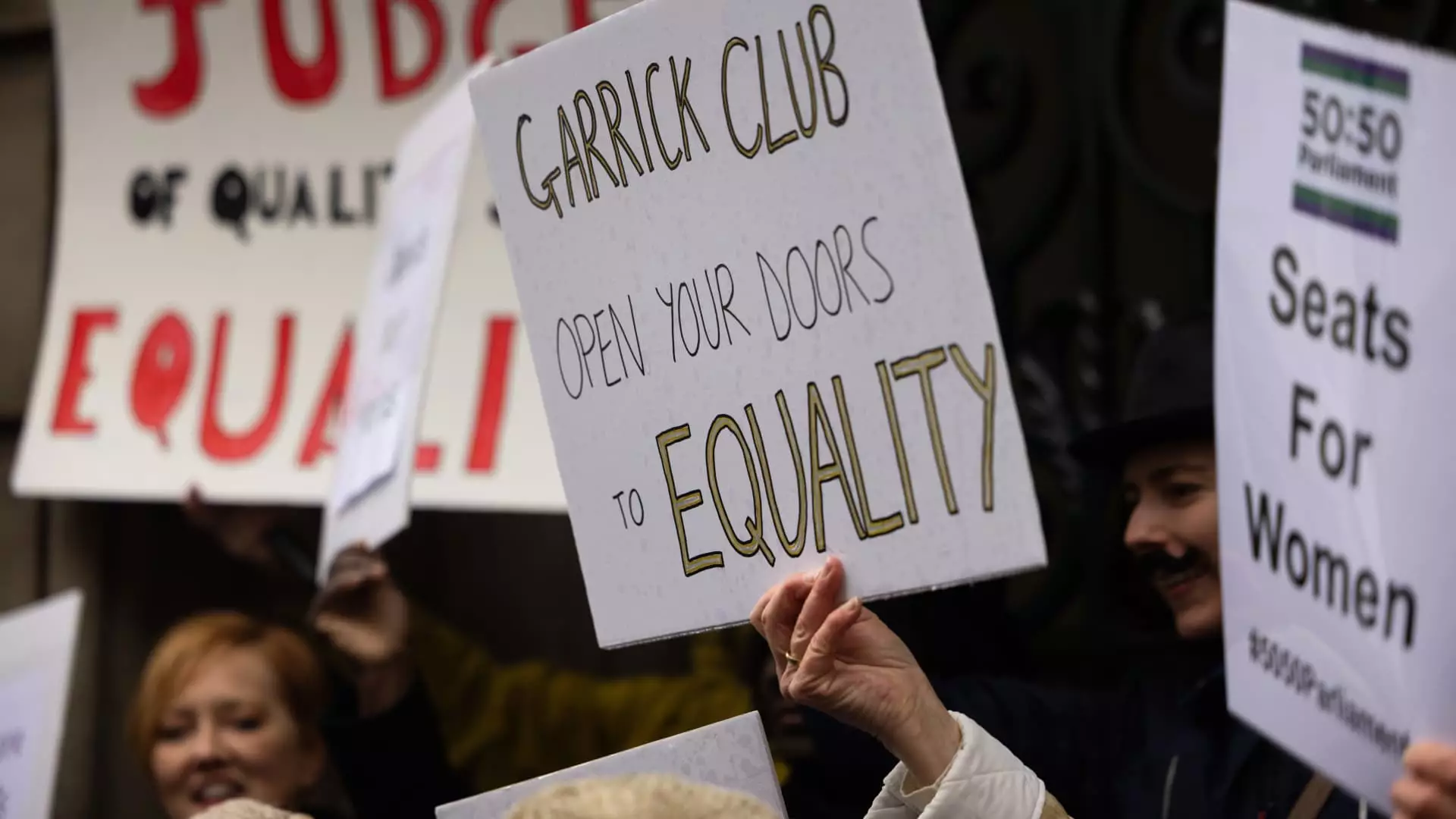In a historic move, members of Britain’s prestigious Garrick Club have voted to allow women to become part of the institution for the first time in its 193-year history. This decision marks a significant milestone for the exclusive all-male club, which has long been criticized for its patriarchal traditions and lack of diversity. The vote, held in central London, saw 59.98% in favor of admitting women following a two-hour confidential debate behind closed doors.
In recent weeks, the Garrick Club has come under intense scrutiny after a leaked membership list revealed the exclusive club’s most influential members. The list portrayed the club as a symbol of Britain’s patriarchal establishment, with the majority of members being white men over the age of 50. Among the members listed were prominent public figures such as King Charles III, the deputy prime minister, and high-ranking officials from the Secret Intelligence Service (MI6).
Established in 1831 with the aim of providing a space where “actors and men of refinement and education might meet on equal terms,” the Garrick Club has evolved over the years. Today, with over 1,300 members, the club has decided to break away from its traditional norms and embrace inclusivity by welcoming women into its ranks. This decision reflects a changing societal landscape and a growing demand for equality and diversity in all spheres of life.
The Garrick Club’s decision to admit women comes at a time when private-member clubs in Britain are facing increasing criticism for their exclusivity and elitism. Several high-profile scandals have rocked these elite groups, exposing issues such as sexism, vandalism, and bullying. Former prime ministers Boris Johnson and David Cameron faced backlash over revelations of toxic behavior within their Oxford University Bullingdon Club, while a charity dinner organized by the President’s Club was marred by reports of sexual harassment.
The Garrick Club’s vote to allow women to join after nearly two centuries sets a precedent for other exclusive clubs to reevaluate their membership policies and embrace diversity. This move not only marks a significant shift in the club’s history but also reflects a broader societal change towards inclusivity and equal opportunities for all.


Leave a Reply